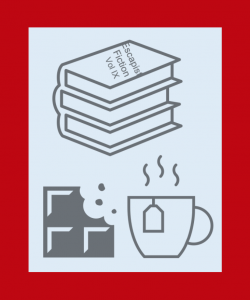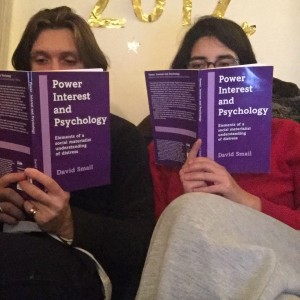Why should you remember the 5th November? Because it’s the anniversary of our first EDIT blog post, of course! To celebrate 5 years of the EDIT blog, we’re sharing five insights about our posts, series, sources of inspiration and more!
The FIVE most viewed posts
1) Could you take time off work for mental health?
Our number 1 most viewed post (with over 7,000 views!) was written by past EDIT Lab placement student, Anna Spaul. Anna discusses how ‘mental health days’ came to exist, the controversy surrounding them, and reminds us of the importance of taking time to protect our mental wellbeing – no wonder it’s one of our most loved posts!
2) How the media glamorises mental illness and why this culture is dangerous – The Virgin Suicides
In at number 2, Sarah Derveeuw, gives her take on the important topic of how mental health and illness is portrayed in the media, and the dangers of inaccurate representation. This post is part of our Wider World theme, which covers a diverse array of topics that link our research interests to what’s happening in the world around us.
3) The secret life of part-time PhD students
Exemplifying another of the key themes of the EDIT Blog, Life Scientific, Molly Davies and Yasmin Ahmadzadeh share their experiences of doing a part-time PhD and give some of their top tips for those considering this route. Since writing this post, Yasmin has passed her PhD viva with no corrections, so we think her advice is certainly worth a read!
4) The emotional stress of gender dysphoria and how to help
At number 4, Megan gives an insightful overview of the distress often associated with gender dysphoria and shares resources for anyone wanting to learn more about supporting this community.
5) How to protect your mental health when genetics make you vulnerable
Last but by no means least, Jehannine Austin takes the spot as our most viewed guest contributor, with her blog about her role as a genetic counselor. Jehannine describes her famous “mental illness jar” analogy as a tool for understanding vulnerability and protective factors for mental illness.

Jehannine Austin’s “mental illness jar” analogy from her guest blog ‘How to protect your mental health when genetics make you vulnerable’
FOUR sources of inspiration
Scientific publications
As a blog that is primarily about research, it is unsurprising that scientific articles are one of our key sources of inspiration. The final of our three themes, Research Matters, is packed full of posts helping to break down new findings into easy-to-digest quick reads. As well as research coming out of the EDIT lab, including these two recent papers from the UK Biobank and GLAD Study, we use this as a space to discuss any important publications in our field, such as the largest genome-wide association study of depression and insights into the role of parenting from adoption studies.
Our collaborators beyond academia
We know that there is just as much to learn about science from our non-academia colleagues, whether it’s conversations with clinicians to help us understand the impacts of the pandemic on mental health, insights into working in a psychological therapies service or learning about research in the public, private, and voluntary sectors. These blogs remind us of the real-world implications of research and the benefits of collaboration between industries.
Our own lives
Some of the most positive responses that we have received on the EDIT blog have been to posts about our personal journeys. As a new student, I found it so informative and reassuring to read posts from more senior academics, such as those written by Thalia about time management in research and the balancing act of managing your life and academic career in the context of a chronic health condition. Now entering the final year of my PhD, I’ve reflected on the advice I’ll be trying to follow over the next 12 months, in the hope that it may benefit some fellow students.
Media
From fiction and non-fiction books to TV series, our blog authors aren’t afraid to share their opinions on how mental health, illness and research are presented in the media. At the more positive end of the continuum, some of these reads have gone so far as to inspire us to change our sleep habits and rethink the ethical and moral aspects of our research. Those at the other end are, well, to use Kirstin’s words, “great reads if you need somewhere to target your existential rage”.
THREE series
Alongside the Wider World, Life Scientific, and Research Matters themes, we have run three series of blogs that all share a specific focus.
The first of these was our ‘A-Z’ series, with the aim of sharing informative posts that cover key definitions of the concepts we often write about in our blogs. From Anxiety, to Missing Heritability, finishing with Zzz for Sleep, these posts provide a great introduction for students or researchers who are new to the field.
Our second series was inspired by the launch of the Genetics Links to Anxiety and Depression (GLAD) Study. The GLAD research team were regularly receiving the same questions from prospective participants who had common misconceptions about risk factors and treatments for psychiatric disorders. We wanted to tackle those fallacies head on in our ‘Mythbusters’ series, where we debunk common misbeliefs such as “depression only affects women” and “if a disorder is genetic there is nothing we can do to treat it”.
Finally, we have recently launched an Anti-Racism series, with the aim of opening up the discussion about scientific racism, the experiences of Black, Asian and minority ethnic researchers, and how to improve diversity in research practices. We are grateful to have had input from some amazing guest contributors on these blogs, including Rachel Dada, Ziada Ayorech and Keisha York. We are continuing to learn and reflect on the issues of racism in science, so keep an eye out for more posts in this series!
Our TWO favourite posts
Alicia: Although it is hard to narrow it down, I think my favourite post is Kirstin’s blog “Reflecting on resilience”. It’s the first of two posts discussing the resilience needed in academia from the perspective of an early career researcher (ECR) and a senior academic. In Kirstin’s blog, from the ECR point of view, she talks about the first big rejection that hit her as a researcher and her tips to prepare for these challenges, introducing us to her idea of a “break glass in case of major rejection” emergency comfort kit!
Thalia: I’ve decided on Georgina and Bronte’s mythbusting blog, discussing the fact that “Mental illness is not a sign of weakness”. It has been fantastic seeing so many researchers engaging with the blog, but when we first set it up, a real priority for me was trying to get our science “out there” to members of the public. The mythbuster series, and the A to Z series before it, are full of brilliant pieces that do this, but this one highlights the importance of us all working to reduce stigma and blame around mental health conditions.

Kirstin’s “break glass in case of major rejection” box from her blog ‘Reflecting on resilience: Part 1’
ONE shared passion
When we started the EDIT blog five years ago, our aim was to share our reflections on important topics relating to our research and lives as researchers. As it has grown to cover guest posts, series and even the occasional short story, we have been amazed by how it has enabled us to engage with other students, researchers and participants who share the same enthusiasm for science. We look forward to continuing to learn from each other and help make science more accessible. Oh, and occasionally just write about how evil potatoes are.



